SEA-NL calls on province to investigate foreign control/corporate concentration in fish processing sector
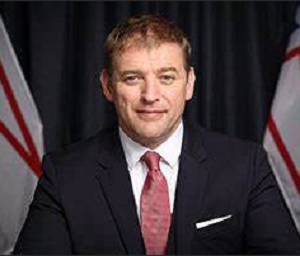 Tuesday, Aug. 23rd, 2021. SEA-NL is calling on Premier Andrew Furey to launch an investigation into foreign control/corporate concentration in the province’s fish processing sector to coincide with a similar ongoing federal review of offshore fishing licences.
Tuesday, Aug. 23rd, 2021. SEA-NL is calling on Premier Andrew Furey to launch an investigation into foreign control/corporate concentration in the province’s fish processing sector to coincide with a similar ongoing federal review of offshore fishing licences.
The federal Department of Fisheries and Oceans (DFO) is currently reviewing foreign ownership/corporate concentration of offshore licences to prevent foreign interests from establishing effective control over licence-holders.
“Ottawa’s review of offshore licences is only half the story, and only half the issues that must be addressed in the province’s fishery,” says Ryan Cleary, interim Executive Director of Seaward Enterprises Association of Newfoundland and Labrador.
“The whole story about potential illegal control of offshore and inshore fish quotas won’t be told until the Premier launches a parallel investigation.”
Federal jurisdiction over the commercial fisheries ends when the fish reaches the wharf, at which point the buying and processing of fish falls under provincial jurisdiction.
In a letter Monday to Premier Furey (copy attached) SEA-NL formally requested the province investigate the processing sector; and, ideally, team-up with the federal Department of Fisheries and Oceans (DFO) in a sweeping probe to cover the province’s entire fishing industry (offshore and inshore fishing licences) from stem to stern.
In its review, Ottawa is reportedly preparing a mandatory ownership survey to be distributed to offshore licence holders. There are 97 offshore licences in Eastern Canada and the Arctic that are fished by the factory-freezer trawler fleet — accounting for 37% of total landings in Eastern Canada.
Further, the House of Commons Standing Committee on Fisheries and Oceans has held two hearings since May to investigate corporate offshore licences.
During those hearings, concerns were expressed about foreign control/corporate concentration in the processing sector in the Atlantic provinces by companies like Royal Greenland (wholly owned by the government of Greenland).
Royal Greenland is the largest processing company in Newfoundland and Labrador today, and, combined with Ocean Choice International and the Barry Group, control most fish (and shellfish) processing in the province.
Cleary points out that concerns have also been raised by the FFAW-Unifor; as well as the province’s fish processing licensing board, which has described the level of foreign investment as “significant” by companies such as Royal Greenland that are normally “our competitors in world markets.”
Controlling agreements — which allow foreign and local processing companies operating in the province today to have power over inshore quotas of all species — are another source of concern.
“Such agreements allow third parties to control, influence or benefit from a fishing licence, and raise alarm bells regarding food security, and sovereignty,” Cleary said, adding that 20 years ago this year in September 2001 the province appointed a special panel on foreign control/corporate concentration .
“The panel found that foreign investment wasn’t a huge factor in the fishery at the time, and recommended the creation of today’s fish processing licence board, which, ironically, said last year that the question of foreign ownership was outside its mandate when it approved Royal Greenland’s takeover of Quinlan Brothers.”
SEA-NL also called on the federal and provincial governments to investigate the amount of frozen, unprocessed fish that’s leaving Newfoundland and Labrador for processing in other countries such as China, and to make the information public.
“The Newfoundland and Labrador fishery belongs to the people and communities of this province, and it’s up to the Premier to ensure our best interests are protected.”
Contact Ryan Cleary: 682-4862
______________________________________________________
Aug. 23rd, 2021
Premier Andrew Furey
The Office of the Premier
Confederation Building, East Block
P.O. Box 8700
St. John’s, NL
A1B4J6
E-mail: [email protected]
Dear Premier,
As Interim Executive Director of Seaward Enterprises Association of Newfoundland and Labrador (SEA-NL), a non-profit group representing independent, licensed owner-operator inshore fish harvesters, I write to you regarding issues of extreme importance to the future of the province’s fishery.
First, as you may be aware, the Government of Canada is currently reviewing foreign ownership/corporate-
There are 97 offshore licences in Eastern Canada and the Arctic that are fished by the factory-freezer trawler fleet — accounting for 37% of total landings in Eastern Canada.
Ottawa is said to be preparing a mandatory ownership survey to be distributed to offshore licence holders this fall. As well, the House of Commons Standing Committee on Fisheries and Oceans has held two meetings since May investigating corporate offshore licences.
SEA-NL’s primary concern is that the federal government’s ongoing review of the ownership of offshore quotas doesn’t go far enough.
DFO’s jurisdiction over the commercial fisheries ends when the fish reaches the wharf, at which point the buying and processing of fish falls under provincial jurisdiction.
But foreign control/corporate concentration is also a huge concern in the processing sector — which is where the Newfoundland and Labrador government must step up.
From SEA-NL’s perspective, the Furey administration must investigate foreign ownership/corporate concentration in the processing sector, and, ideally, team-up with the feds in a sweeping probe so the entire fishing industry (offshore and inshore fishing licences) is covered from stem to stern.
As you’re aware, Royal Greenland, a Crown corporation owned by the Greenland government, became the largest fish processor in Newfoundland and Labrador in the fall of 2020 with a deal that included the purchase of Quinlan Brothers.
Indeed, three companies — Royal Greenland, Ocean Choice International, and the Barry Group — now control most of all fish (and shellfish) processing in the province.
The companies are also widely believed to control an unknown number of inshore fishing licences through so-called controlling agreements “whereby a person or corporation other than the named license-holder controls, influences and benefits from the license.”
Those controlling agreements are said to be rampant in Newfoundland and Labrador’s inshore fishery, which should set off alarm bells regarding food security, and the province’s ability to economically capitalize on the inshore fishery.
Questions for the provincial government include how extensive is foreign control/corporate concentration in the province’s processing sector, and how much inshore quota is controlled by entities other than inshore licence-holders?
Ottawa cannot answer these critical questions since it is not within its jurisdiction.
When Quinlan Brothers was purchased by Royal Greenland last year it was widely believed (and publicly speculated) that both companies were involved in illegal controlling agreements.
In September, 2020, the province’s fish processing licence board recommended approving the Royal Greenland deal — even as it raised a red flag over foreign investment in the fishery by companies “who are normally our competitors in the world markets.”
“It raises the possibilities of key decisions affecting our industry and fishing communities here in Newfoundland and Labrador being made in another country,” the board said in a statement. “The level of investment is getting to be significant.”
How significant remains the outstanding question?
This past May, Keith Sullivan, President of the FFAW-Unifor, told the House of Commons Standing Committee on Fisheries and Oceans that the majority of some fishing fleets in the province are illegally owned by fish processing companies.
“It’s obvious in every community. We can go around communities in Newfoundland and Labrador and say, ‘That’s a company boat and that’s a company boat.’ There seems to be a real hesitation on the part of the Department of Fisheries and Oceans to do anything about it.”
Mr. Premier, a review of foreign control/corporate concentration in the province’s fishery isn’t without precedent. In September 2001, the province appointed a special panel on corporate concentration.
The panel found that foreign investment wasn’t a huge factor in the fishery at the time, and recommended the creation of today’s fish processing licence board, which, ironically, said last year that the question of foreign ownership was outside its mandate.
The allegations of foreign control must not go unchallenged.
Another issue of critical importance to the future of the province’s commercial fisheries is the amount of unprocessed fish that’s leaving Newfoundland and Labrador for processing in other countries such as China.
In the past, efforts to obtain such information from the federal and provincial government have not been successful.
SEA-NL is calling on the federal and provincial governments to investigate the amount of frozen, unprocessed fish that’s leaving Newfoundland and Labrador for processing in other countries such as China, and to make the information public.
In Canada, fish is a common property resource, meaning owned by the people. How would Canadians feel if they knew untold millions of pounds of their fish are being shipped to foreign destinations for processing?
The time has come for both levels of government to dig into foreign ownership/corporate concentration in all sectors of the Newfoundland and Labrador fishery — harvesting and processing — which can be equally damaging to the fishery of the future.
Ryan Cleary,
Interim Executive Director, SEA-NL
c.c. [email protected]

































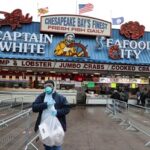
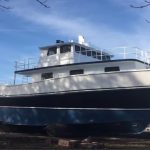
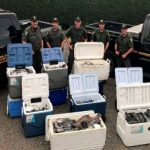

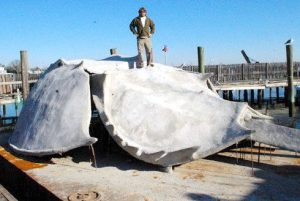
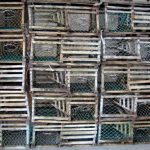
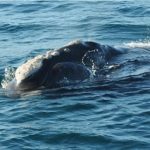
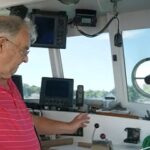
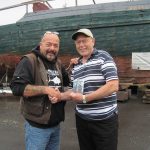
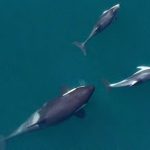
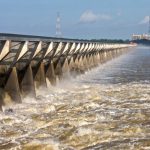
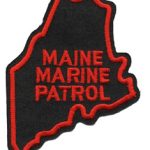

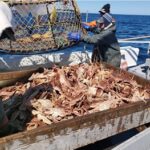




Step up to the plate, Premier Furey, do your job that you were elected to do. Fight for Newfoundland and Labrador, SAVE OUR FISHERY